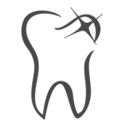
VISITING HOURS:
Week Days - 9 am to 8 pmSundays - Only Emergency Cases
What Are the Pros and Cons of Teeth Whitening Toothpastes?
There are some factors to consider when using whitening toothpaste that could affect the health of your teeth. Whitening toothpaste is made up of many substances that work together to get rid of stains and make your teeth look whiter. However, these substances may damage your tooth enamel and cause sensitivity in your gums and teeth. While whitening toothpastes available over the counter are typically safe, it is important to carefully follow the directions on the product label.
Many toothpastes that claim to whiten teeth include a texture that is intended to physically remove stains from your teeth. On the other hand, frequent use of this abrasive action could harm the gums and the enamel. Rather than whitening your teeth, you may unintentionally weaken the enamel on your teeth, making them more vulnerable to decay. Read more about the Pros and Cons of Teeth Whitening Toothpastes
Does Teeth Whitening Toothpaste Work?
Teeth whitening toothpaste is often thought to remove stains from the surface of your teeth. A few of these toothpaste brands even contain charcoal, which can absorb some surface stains and has a somewhat abrasive quality.
It’s important to remember, though, that teeth-whitening toothpaste isn’t shown to have any effect on stains that are hidden beneath the enamel or have a spontaneous whitening effect.
A product must be effective against inner stains—those that lie beneath the enamel—as well as surface stains to provide real teeth whitening.
Furthermore, teeth-whitening toothpaste may be too strong for regular usage, which could erode your tooth enamel. In addition to potentially increasing tooth sensitivity, this can paradoxically make your teeth appear more yellow by exposing the dentin, a calcified yellow tissue.
The majority of teeth-whitening toothpaste brands don’t contain fluoride, which is another thing to take into account. Maintaining strong tooth enamel, which protects your teeth from cavities and decay, requires fluoride. A potential link between charcoal toothpaste and increased tooth decay has been suggested by several studies.
Yet it’s unclear how charcoal affects dental restorations. The potential impact of charcoal on materials used in veneers, bridges, crowns, and white fillings is still unknown. Charcoal granules may gather in the spaces between them, sometimes producing a grey or black border.
Whitening Toothpaste: Pros and Cons
You should understand the pros and cons of teeth-whitening toothpaste. Using whitening toothpaste daily is complex. Those with sensitivity may experience dental health issues. While the chemicals in whitening toothpaste work to eliminate stains, they can also damage enamel and increase sensitivity. obey the directions on the label.
Fluoride, silica, and baking soda are typical chemicals that help whiten teeth. For surface stains, some have only a small amount of peroxide, although expert treatments are more effective. To discuss what you need in particular, speak with your dentist or get in touch with the Dentique clinic.
Whitening toothpaste: Is It Safe?
Further research is necessary to determine whether charcoal toothpaste is safe. Due to untested claims and safety concerns, a study emphasized care and urged dentists to tell their patients not to use teeth-whitening toothpaste.
What we presently know about toothpaste with charcoal is as follows:
Abrasiveness: Teeth whitening toothpaste can be too rough for everyday use. Too much abrasion might cause enamel wear, which could expose the dentin, a yellowish substance, and increase sensitivity in the teeth.
Absence of Fluoride: Fluoride is absent from the majority of teeth-whitening toothpaste brands. Fluoride is crucial for maintaining healthy tooth enamel, which guards against decay and cavities. The use of charcoal toothpaste may cause tooth decay, according to some data.
Staining Potential: Charcoal toothpaste may cause staining on certain teeth, particularly older ones. The accumulation of charcoal particles in the teeth’s fissures and crevices may result in discoloration.
Dental Restorations: It is still unknown how charcoal toothpaste can affect dental restorations. The impact of charcoal on materials including veneers, bridges, crowns, and white fillings is unknown. Between these restorations, there’s a chance that charcoal dust may assemble and produce a black or grey outline.
Even though charcoal toothpaste is advertised for teeth whitening, there may be hazards involved. It is advised to utilize such products carefully and seek out specific advice from your dentist. To determine the long-term effects and safety of charcoal toothpaste, additional research is also required.
Professional Dental Treatments
Depending on dental hygiene, dental procedures last between 1-2 years and produce benefits after just a few visits. To remove tough stains, they make use of powerful chemicals. Select expert dental whitening for dazzling, long-lasting results.
Oral Care Routine
Keep up dental hygiene practice for pearly whites. Fluoride toothpaste should be used twice daily, along with fluoridated mouthwash and frequent flossing. Every six months, visit the dentist. Avoid foods and beverages that can discolor your teeth, such as coffee, sweets, candies, and pastries.
Also Read: Ultimate Guide for Choosing the Right Toothpaste
Conclusion
This article describes the pros and cons of teeth-whitening toothpaste. Make dental health a priority and speak with your dentist before deciding whether or not to whiten your teeth. Prioritize oral health for a confident, white smile. Choose Dentique for teeth whitening for professional, safe, and effective results. Our experienced team ensures personalized care, addressing your unique concerns. We use trusted methods to brighten your smile, offering a comfortable and reliable teeth-whitening experience.
Contact us for your queries and concerns related to your oral health or book an appointment.
OUR
TREATMENTS
TREATMENTS








